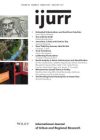This essay reflects on four structural logics of poverty generation, developed in Urban Outcasts. These are the logics of macro‐social, economic, political and spatial dynamics. Considering the Chinese context, the essay suggests that, rather than being isolated from mainstream production, the Chinese urban poor are engaged in global commodity production. While no obvious ghettos have been so far identified in Chinese cities, there are spatial concentrations of the poor in particular neighbourhoods. This spatial concentration is related to state institutions before and after economic reform. Throughout the process of poverty generation, the role of the state is prominent, as highlighted in Wacquant’s research on American and French cities. I argue that the role of the state is complex, not just penal. One significant contribution of Wacquant’s book is that it reveals important differences between French banlieues and American ghettoes, thus highlighting the need to examine place‐specific regimes of marginality. As for ‘advanced’ marginality, Wacquant emphasizes its structural causes, which are particularly relevant to China’s urban transition. In China, we can also identify the ‘advanced’ stage of suppressing the poor in the process of urban change.
Details
Written by:
FULONG WU
Digital Object Identifier (DOI)
10.1111/j.1468-2427.2009.00921.x
About DOI
Read full article as PDF
Read full article as HTML
See the references for this article
